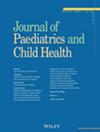Ethical Dilemmas in Clinical Trials of Innovations in Bubble Continuous Positive Airway Pressure Models in Resource-Limited Neonatal Care
Abstract
Background
Bubble Continuous Positive Airway Pressure (bCPAP) has become a crucial intervention in neonatal care, particularly in resource-limited settings where access to advanced respiratory support is scarce. While bCPAP offers a cost-effective solution for neonatal respiratory distress, conducting clinical trials in these settings presents significant ethical challenges. Issues of justice, beneficence, and autonomy arise due to disparities in healthcare infrastructure, complexities surrounding informed consent, and the potential exploitation of vulnerable populations.
Methods
In this study, I examine the ethical principles essential to the design and implementation of bCPAP trials, focusing on justice, beneficence, and autonomy within the constraints of resource-limited settings. A normative analysis was conducted, drawing on key ethical frameworks to establish guiding principles for conducting ethically sound bCPAP trials.
Results
Applying frameworks such as Rawls' theory of distributive justice and Sen's capability approach, I argue for prioritizing neonatal populations in low-resource settings while addressing the potential for exploitation. Autonomy underscores the need for informed consent processes that are culturally appropriate and accessible, empowering caregivers in decision-making. Beneficence and non-maleficence are evaluated through both utilitarian and deontological perspectives, balancing the potential benefits of innovation against the risks to participants. Structural inequities that complicate neonatal care and research are also critically examined.
Conclusion
I advocate for the integration of ethical safeguards, including community-centered consent processes, rigorous trial protocols, and international collaboration to mitigate systemic inequities. By incorporating these ethical considerations, bCPAP research can better serve the interests of neonates and their families while ensuring their safety and dignity are upheld.

 求助内容:
求助内容: 应助结果提醒方式:
应助结果提醒方式:


